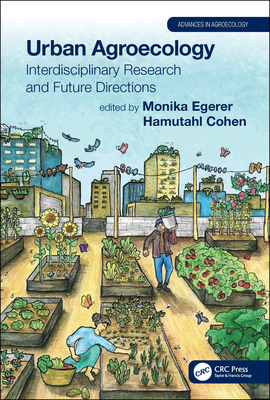商品描述
Sustainable and Emerging Energy Technology: Challenges, Opportunities, and Perspectives presents advanced technologies and research results in theoretical, experimental, and practical sustainable and emerging energy engineering. Contributions cover theoretical analyses and case studies to explore new concepts, technological advancements, and practical applications to help engineers and researchers better understand the relevant concepts and solutions necessary to achieve global Sustainable Development Goals. The book brings together the latest developments in the emerging areas of renewable systems and technologies, green energy buildings, intelligent power systems, microgrids, energy storage, and security. Coverage includes:
Renewable energy systems and applications; Power generation and efficiency; Power transmission, distribution, and control; Power grids and microgrids; Energy storage and conversion; Energy efficiency in conventional and renewable energy systems; Energy systems for buildings; Integration of renewable energy sources in buildings; Greening urbanization and urban settlements.
This book is a valuable resource offering practical approaches to help engineers and researchers in sustainable and emerging energy engineering technologies solve the problems affecting future communities.
Analyzes sustainable energy technologies; Offers case studies examining technological advancements alongside practical applications; Examines the environmental impact of energy supply and management.
商品描述(中文翻譯)
《可持續與新興能源技術:挑戰、機會與展望》介紹了在理論、實驗和實踐可持續與新興能源工程方面的先進技術和研究成果。貢獻涵蓋理論分析和案例研究,以探索新概念、技術進步和實際應用,幫助工程師和研究人員更好地理解實現全球可持續發展目標所需的相關概念和解決方案。本書匯集了可再生系統和技術、綠色能源建築、智能電力系統、微電網、能源儲存和安全等新興領域的最新發展。內容包括:
- 可再生能源系統及其應用;
- 發電與效率;
- 電力傳輸、配電與控制;
- 電力網與微電網;
- 能源儲存與轉換;
- 傳統與可再生能源系統中的能源效率;
- 建築的能源系統;
- 建築中可再生能源的整合;
- 城市化與城市定居點的綠化。
本書是一本寶貴的資源,提供實用的方法,幫助工程師和研究人員在可持續與新興能源工程技術中解決影響未來社區的問題。
- 分析可持續能源技術;
- 提供案例研究,檢視技術進步與實際應用;
- 檢視能源供應與管理的環境影響。
作者簡介
Xiaolin Wang, Ph.D., is a Professor in the School of Engineering, University of Tasmania. He worked as a Research Fellow in the Department of Mechanical Engineering at the National University of Singapore from 2002 to 2005. In 2003, he was a visiting scientist at the University of Siegen, Germany, funded by DAAD, Germany. In 2005, Prof. Wang joined the School of Mechanical and Chemical Engineering at the University of Western Australia. In 2012, he joined the School of Engineering, University of Tasmania, where he is now a Professor and Deputy Director of the Centre for Renewable Energy and Power Systems. His research interests include cooling and power engineering, energy storage and conversion, desalination, and utilization of renewable energy. Prof. Wang is a Fellow of Engineers Australia and was named a Field Leader in Thermal Science by The Australian's Research Magazine in 2018. He is listed among the Stanford/Elsevier Top 2% Scientists in 2024. His national and international reputation in thermal science is evidenced by his achievements and awards, including the DAAD visiting fellowship by DAAD Germany in 2003 and the Ludwig Mond Prize 2005 by the Institute of Mechanical Engineers (IMechE), the Australian China Young Scientist Exchange Program award in 2009, and the Australian Japan Emerging Research Leader Program award in 2016 from the Australia Academy of Technological Sciences and Engineering (ATSE). He received the Dean's Award for outstanding research performance in 2016 and the College Research Excellence Award in 2023 at the University of Tasmania and the Editor's Choice Award from Applied Thermal Engineering. Prof. Wang is a subject editor of Applied Thermal Engineering, Associate Editor of the IMechE, Part E: Journal of Process Mechanical Engineering; Scientific Reports; and Frontiers in Built Environment, and Guest editor of Applied Sciences, Energies, Sustainability, and Thermo. He has completed many national/international research projects with a total value of around $7.5 million. He is also a member of the Blue Economic CRC ($329 million). To date, he has published more than 300 journal and conference papers.
作者簡介(中文翻譯)
王小林博士是塔斯馬尼亞大學工程學院的教授。他於2002年至2005年在新加坡國立大學機械工程系擔任研究員。2003年,他獲得德國DAAD資助,成為德國西根大學的訪問科學家。2005年,王教授加入西澳大利亞大學機械與化學工程學院。2012年,他加入塔斯馬尼亞大學工程學院,目前擔任教授及可再生能源與電力系統中心的副主任。他的研究興趣包括冷卻與電力工程、能源儲存與轉換、海水淡化以及可再生能源的利用。王教授是澳大利亞工程師協會的會士,並於2018年被《澳大利亞研究雜誌》評選為熱科學領域的領導者。他在2024年被列入斯坦福/Elsevier前2%的科學家名單。他在熱科學領域的國內外聲譽由他的成就和獎項證明,包括2003年獲得德國DAAD的訪問獎學金、2005年獲得機械工程師學會(IMechE)的路德維希·蒙德獎、2009年獲得澳大利亞中國青年科學家交流計劃獎,以及2016年獲得澳大利亞技術科學與工程學院(ATSE)的澳大利亞日本新興研究領導者計劃獎。他於2016年獲得塔斯馬尼亞大學的院長獎以表彰其卓越的研究表現,並於2023年獲得學院研究卓越獎及《應用熱工程》雜誌的編輯選擇獎。王教授是《應用熱工程》的主題編輯、《IMechE, Part E: Journal of Process Mechanical Engineering》的副編輯、《Scientific Reports》及《Frontiers in Built Environment》的編輯,以及《Applied Sciences, Energies, Sustainability, and Thermo》的客座編輯。他已完成多個國內/國際研究項目,總價值約750萬美元。他也是藍色經濟CRC(3.29億美元)的成員。至今,他已發表超過300篇期刊和會議論文。




















